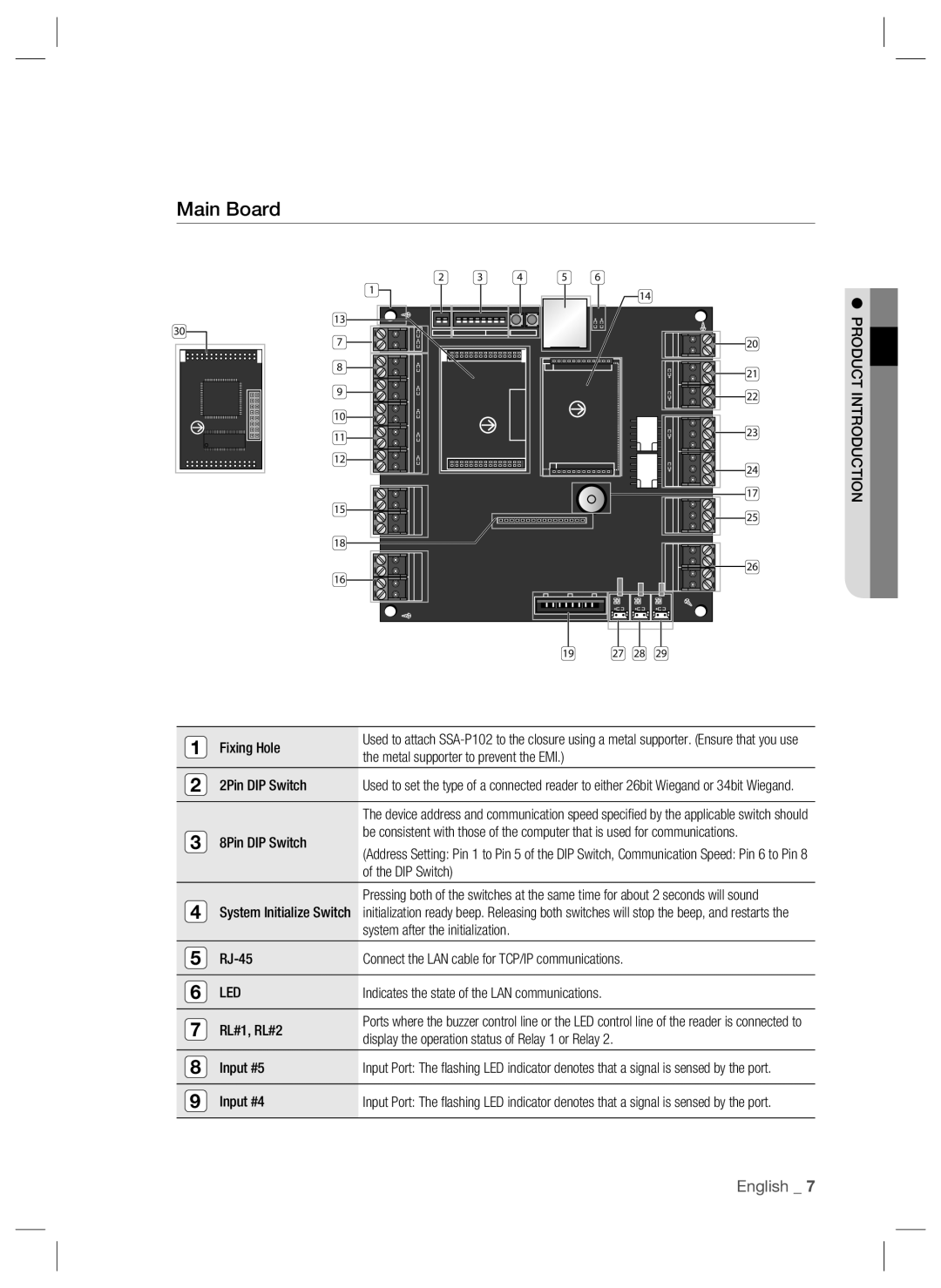
Main Board
2 | 3 | 4 | 5 | 6 |
1 |
|
|
| 14 |
|
|
|
| |
13 |
|
|
|
|
30 |
|
|
|
|
7 |
|
|
| 20 |
8 |
|
|
| 21 |
|
|
|
| |
9 |
|
|
| 22 |
|
|
|
|
10 |
|
|
|
11 |
|
| 23 |
|
|
| |
12 |
|
| 24 |
|
|
| |
|
|
| 17 |
15 |
|
| 25 |
|
|
| |
18 |
|
|
|
|
|
| 26 |
16 |
|
|
|
19 | 27 | 28 | 29 |
1 | Fixing Hole | Used to attach | |
the metal supporter to prevent the EMI.) | |||
|
| ||
2 | 2Pin DIP Switch | Used to set the type of a connected reader to either 26bit Wiegand or 34bit Wiegand. | |
|
|
| |
|
| The device address and communication speed specified by the applicable switch should | |
3 | 8Pin DIP Switch | be consistent with those of the computer that is used for communications. | |
(Address Setting: Pin 1 to Pin 5 of the DIP Switch, Communication Speed: Pin 6 to Pin 8 | |||
|
|
of the DIP Switch)
Pressing both of the switches at the same time for about 2 seconds will sound
4System Initialize Switch initialization ready beep. Releasing both switches will stop the beep, and restarts the system after the initialization.
5 | Connect the LAN cable for TCP/IP communications. | ||
6 | LED | Indicates the state of the LAN communications. | |
|
|
| |
7 | RL#1, RL#2 | Ports where the buzzer control line or the LED control line of the reader is connected to | |
display the operation status of Relay 1 or Relay 2. | |||
|
| ||
8 | Input #5 | Input Port: The flashing LED indicator denotes that a signal is sensed by the port. | |
|
|
| |
9 | Input #4 | Input Port: The flashing LED indicator denotes that a signal is sensed by the port. | |
|
|
|
PRODUCT INTRODUCTION
English _ 7
